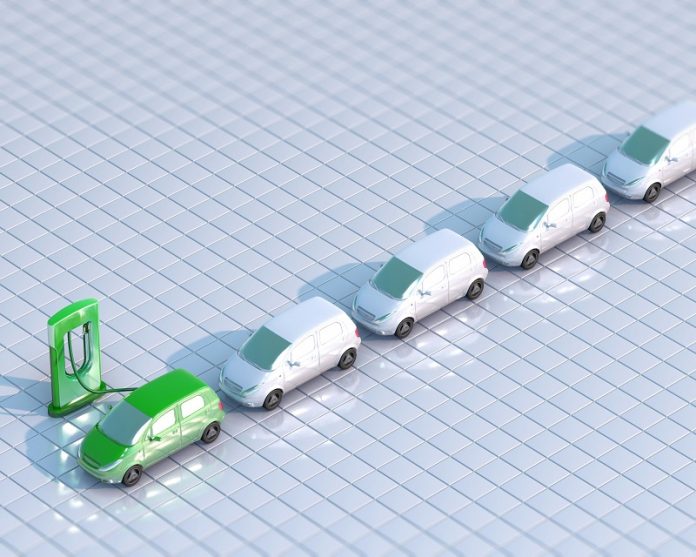
Charging an electric vehicle (EV) may soon take only 15 minutes, thanks to a breakthrough from researchers at the University of Waterloo.
Their new battery design allows EVs to go from 0% to 80% charge in just a quarter of an hour—much faster than the current industry standard, which takes nearly an hour even at fast-charging stations.
In addition to faster charging, the new batteries last longer. They can handle up to 800 charging cycles, significantly more than today’s EV batteries.
This improvement could make EVs more reliable and appealing, especially for second-hand buyers who worry about battery health.
The research, published in the journal Advanced Science, focuses on improving the battery’s anode, the part where electrical current flows into the battery during charging.
Traditional anodes use graphite, but the researchers developed a new method to fuse graphite particles together.
This boosts the battery’s electrical conductivity and allows lithium ions to move faster, reducing the risk of degradation or safety issues caused by rapid charging.
Benefits for everyday drivers
Faster charging and longer-lasting batteries could help reduce the cost of EVs, making them a realistic option for more people.
“This technology could make EVs more accessible, not just for wealthy individuals,” said Professor Yverick Rangom, the study’s lead researcher.
“Smaller, faster-charging batteries mean lower overall vehicle costs. That’s a big win for people who live in apartments or don’t have home charging stations.”
The new batteries also address “range anxiety,” the fear of running out of power on long trips without access to a charger. With faster charging, drivers can stop for a short break and quickly get back on the road.
Easy integration for manufacturers
Another key feature of this new design is its compatibility with existing manufacturing processes. Instead of introducing entirely new materials, the researchers focused on improving how graphite particles are arranged and bonded together.
“This isn’t a complete overhaul of lithium-ion battery materials,” explained Professor Michael Pope, co-lead of the research. “We’re using traditional materials but in a smarter way. This ensures the technology is scalable and can be produced at a low cost.”
The team is now optimizing the manufacturing process and testing prototypes to gain industry support. Their goal is to make this ultra-fast charging technology ready for large-scale production.
“This breakthrough has the potential to change the EV market,” Rangom said. “By solving key challenges like charging time and battery lifespan, we’re helping to make electric vehicles a practical choice for everyone.”



